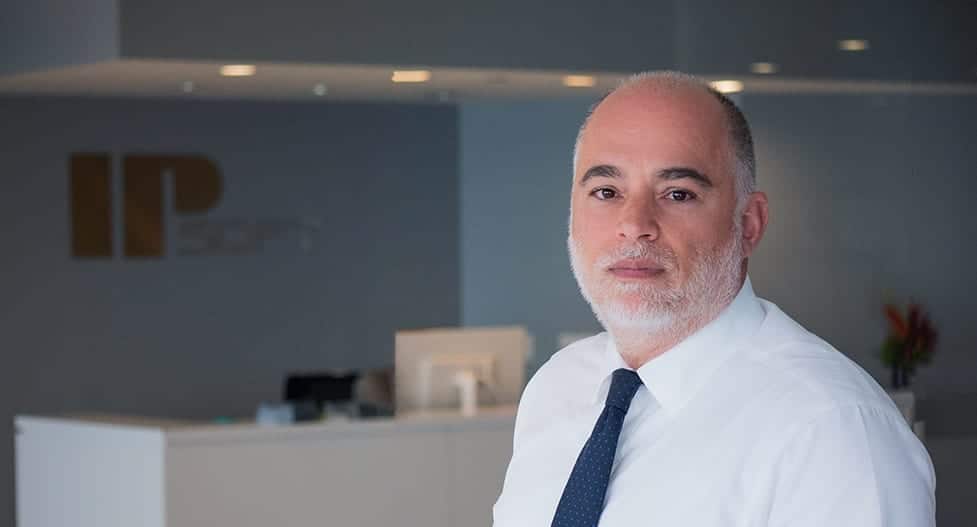S. Vincent Grasso, D.O.’91, M.S.I.S., M.B.A., strives to give clinicians an invaluable new tool in providing health care that’s truly high-quality, hands-on and patient-centered: artificial intelligence (AI). The surgeon, solution/software architect and medical informaticist is the global practice lead in Healthcare and Life Sciences for IPsoft, the global leader in enterprise AI and the world’s largest privately owned AI company.

He’s likely the only doctor of osteopathic medicine to serve in such a role.
“Our products are undergoing integration into the health care delivery ecosystem and will play a significant role in decreasing the cost of health care, improving clinical outcomes and increasing patient satisfaction – the proverbial Triple Aim,” he says.
As a postdoctoral associate in advanced laparoscopic surgery with the Yale University School of Medicine’s surgery department in the late 1990s, he also served as a medical informatics fellow and program manager in the NASA Yale Commercial Space Center for Medical Informatics and Technology Applications.
In that role, he created the concept of “extreme telemedicine” and led a team of Yale researchers, MIT engineers and U.S. Defense Department personnel in using advanced technologies and medical devices to monitor the endurance, physiological status and the effects of extreme exertion, low oxygen and the cold on Mount Everest climbers and base camp team members. He and his base camp colleagues also set up a telecommunications connection to enable the transfer of text, audio and video for live daily rounds with physicians and researchers back at Yale-New Haven Hospital and Walter Reed Medical Center. These projects proved that multidisciplined personnel and cutting-edge technology could enable the delivery of reliable and consistent health care between patients and providers at great distances.
A serial entrepreneur, Grasso joined IPsoft as the company seeks to help health care organizations utilize Amelia, the technology industry’s “most-human” digital product. With its ability to converse with users and access multiple systems of records, Amelia is designed to handle tasks such as scheduling appointments, managing patient information and facilitating communication among health care providers, patients, their care givers, pharmacies and insurance companies. For example, Amelia could contact diabetic patients to have them check their blood sugar levels and report those numbers back. The technology also could give providers patients’ information prior to their appointments.
“Think about a typical patient examination of 20 minutes. A significant portion of that time involves tasks that do not involve problem solving or direct patient-provider engagement,” he says. “In my opinion, many of these activities could be handled by Amelia along or in conjunction with our staff, resulting in a sizable efficiency increase and reduction of physician burnout.”
“ AI entering the clinician toolbox is exciting and starting to happen, delivering on its promise. I see this as a major win-win for all parties – happy providers, happy patients, and that’s not a bad place to be.”
Grasso does not want to reduce providers’ time spent with patients, but rather to optimize it. He practices twice a week in a large Newark, NJ, clinic that serves medically underserved and economically disadvantaged patients, and makes house calls after his clinic hours. He is using his many years of treating patients to imagine and develop new ways to deploy Amelia ethically and with input from relevant stakeholders. That goal requires medical students to better understand technology, he says. Through his own career, Grasso has worked to augment his medical expertise with knowledge in other areas, including by earning an M.B.A. at the University of Massachusetts- Amherst and a master of science in information systems degree from the New Jersey Institute of Technology. He’s also a certified project manager.
“All medical students would greatly benefit from taking a database, programming and business process notation mapping course,” he says. “Technology will change health care dramatically in the coming years, so tool up on your technology expertise, or you will find yourself sitting on the bleachers.
“Clinicians are always eager to learn and apply new tools and techniques to better serve their patients,” he adds. “AI entering the clinician toolbox is exciting and starting to happen, delivering on its promise. I see this as a major win-win for all parties – happy providers, happy patients, and that’s not a bad place to be.”

